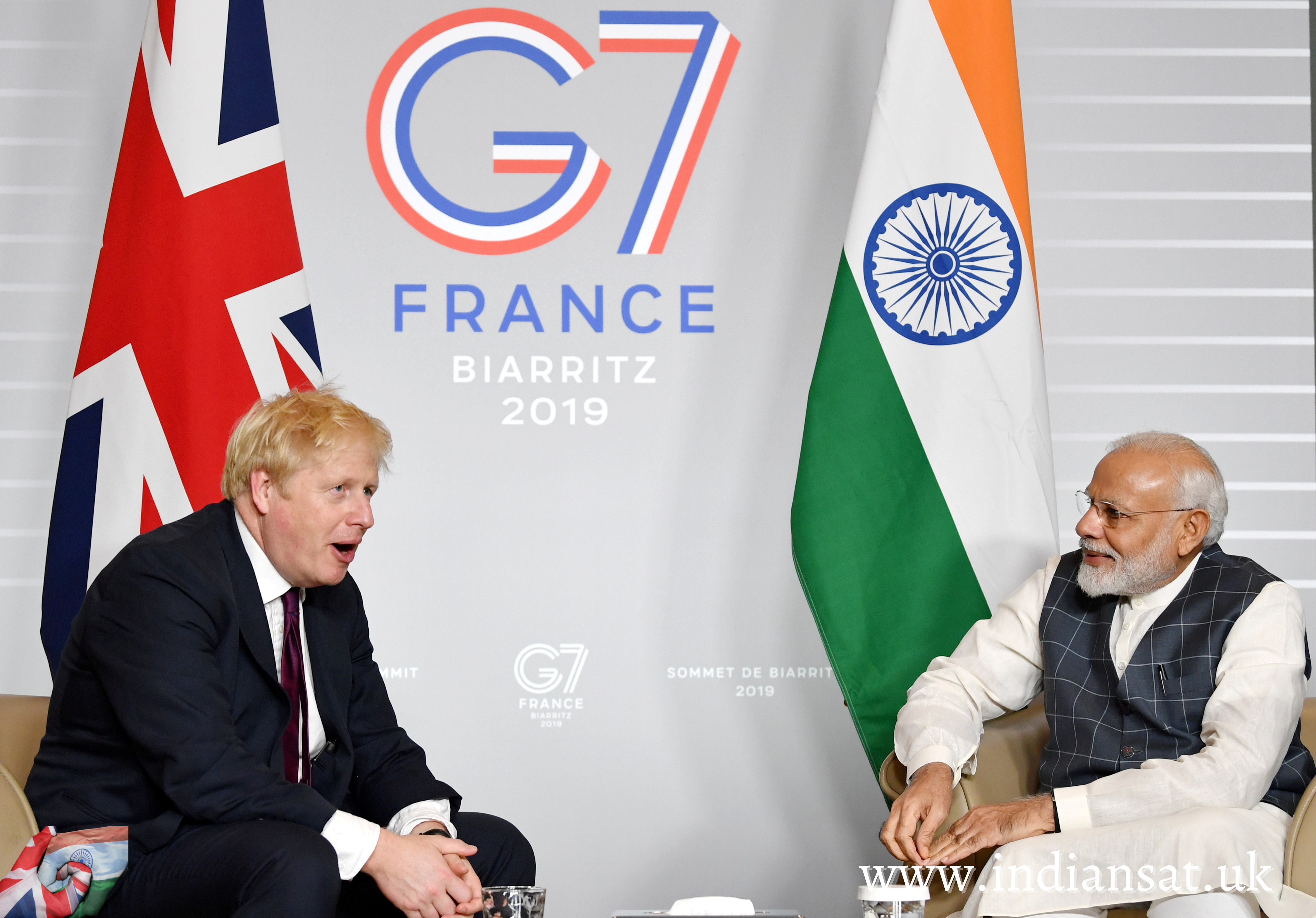Ahead of the G-7 meeting, it is important in building momentum and confidence to deepen co-operation
Bilaterally, the UK and India share a long history, bound together by democratic values, language, and people — often dubbed the “living bridge”. As our two countries take leading roles in the world on urgent issues like combating Covid and climate change, it is also important that the UK and India engage in multilateral forums, like the G-7, to build alliances to achieve the positive global impact that our countries are working towards.
The UK is hosting this year’s G-7, the first since 2019, and India will be attending as one of only four guests. Prime Minister Narendra Modi’s participation is significant — what India thinks matters, particularly on G-7 agenda items like climate change, combating Covid, and achieving a global economic recovery.
India’s participation in the Summit is important for the bilateral relationship too. It was only last month that Prime Ministers Johnson and Modi set out a “transformational Comprehensive Strategic Partnership”, with a 10-year roadmap, which included the UK-India Enhanced Trade Partnership (ETP), an ambition to double trade by 2030, and the intent to open FTA talks. So, lots of exciting commitments, and supported by a mutually agreed path.
It is no surprise that the 10-year Roadmap contains three of the big issues being covered at the G7: tackling climate change; healthcare cooperation (including in the immediate term to address the pandemic); and economic development through trade and investment. The India and UK that the UK India Business Council supports are integral to all three issues, so will be watching the G7 closely.
The Road to COP26
The decision to host the summit in Cornwall signals just how important talks on climate change will be at the summit. Cornwall is home to some of the UK’s greatest green and blue ecosystems, as well as the UK’s first geothermal power plant.
The UK and India are two climate leaders and need to be. The UK is hosting COP26 this year, and we all know of the influence that India (along with China and the US) will have on global climate success. Our countries’ solar and wind sectors are strong, and growing stronger through co-operation, while waste to energy solutions will simultaneously help address two significant problems. Hydrogen, too, can be a game-changer and we are seeing increased UK-India cooperation.
Similarly, electric vehicles and transport infrastructure will be key, again addressing a multitude of challenges.
Combating Covid
As this is the first G-7 to take place since the Covid-19 pandemic, healthcare is core to the agenda. At the G-7 Health Ministers’ summit last week, the equitable access and distribution of vaccines was a key talking point. Increased cooperation on vaccines and wider healthcare will bring benefits to countries across the world.
Together, the UK and India can lead the world on healthcare R&D and manufacturing, and collaborate on the digital technology and AI that will be invaluable in improving the efficacy and availability of healthcare solutions. The Oxford University-Astra Zeneca vaccine manufactured in Pune the most famous example of that. In fact, appropriately, it was in Oxford where the G7 Health Summit took place.
Improving livelihoods
Ensuring the global economic recovery is sustainable will also be on the agenda at the G-7. Business will play a key role in the necessary job creation, innovation, manufacturing, and distribution of the goods required to overcome the world’s problems, including the urgent pandemic and climate change.
The UK and India are in many ways, leading the way when it comes to deepening trade and investment links with the Prime Ministers’ announcement of the Enhanced Trade Partnership. It matters when the 5th and 6th largest economies in the world form a trade partnership and set out to double trade to £50 billion per year by 2030.
A real positive of the ETP is that it will focus on goods and services, including the technology, digital, and IP-rich services where the UK and India are globally integrated. By focussing on the trade of the future now, it is possible that the UK-India ETP and FTA could be the model for trade deals that follow.
All eyes on India
From the bilateral UK-India perspective, the G-7 is important in building momentum and confidence to deepen co-operation across all themes in the 10-year roadmap.
From the multilateral, global perspective, what Modi says on climate change and combating Covid will be really important for the world. India’s domestic energy transition strategy and its climate leadership is relevant to all nations.
Equally, as a leading economy and a healthcare, life sciences and vaccine powerhouse, India has a central role to play in beating this pandemic and in helping the planet build back better.
The writer is UK-India Business Council
![]()






